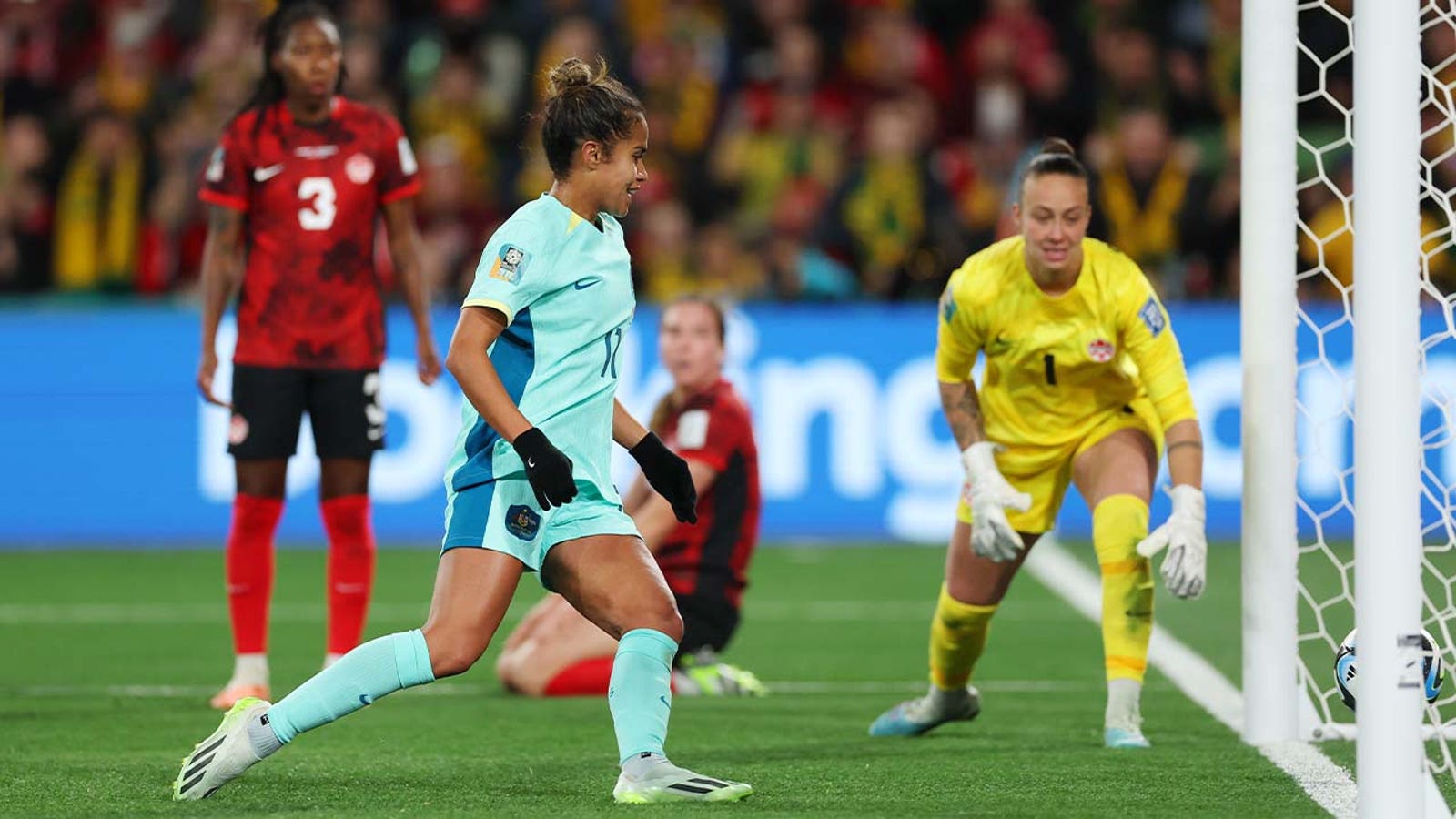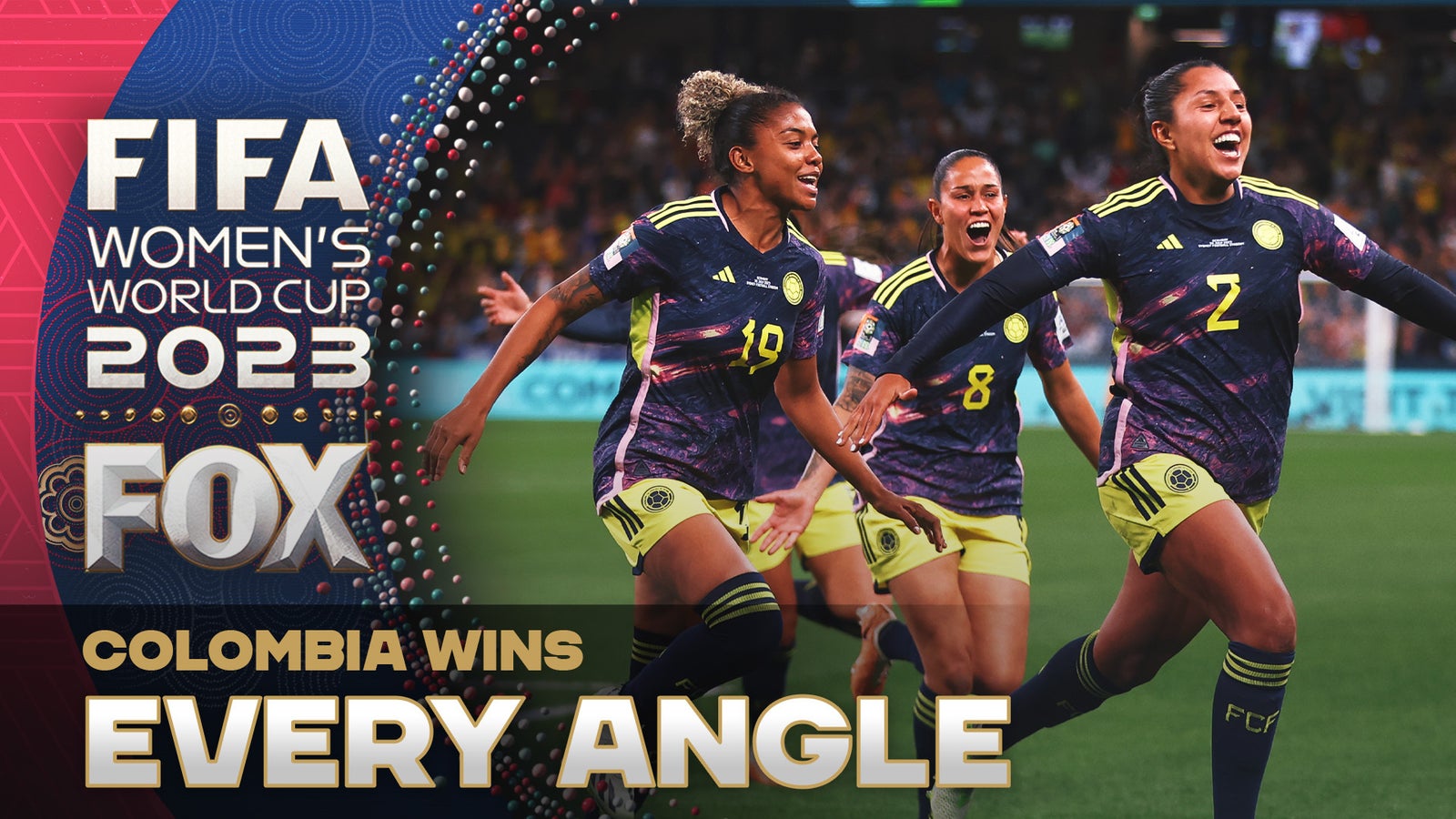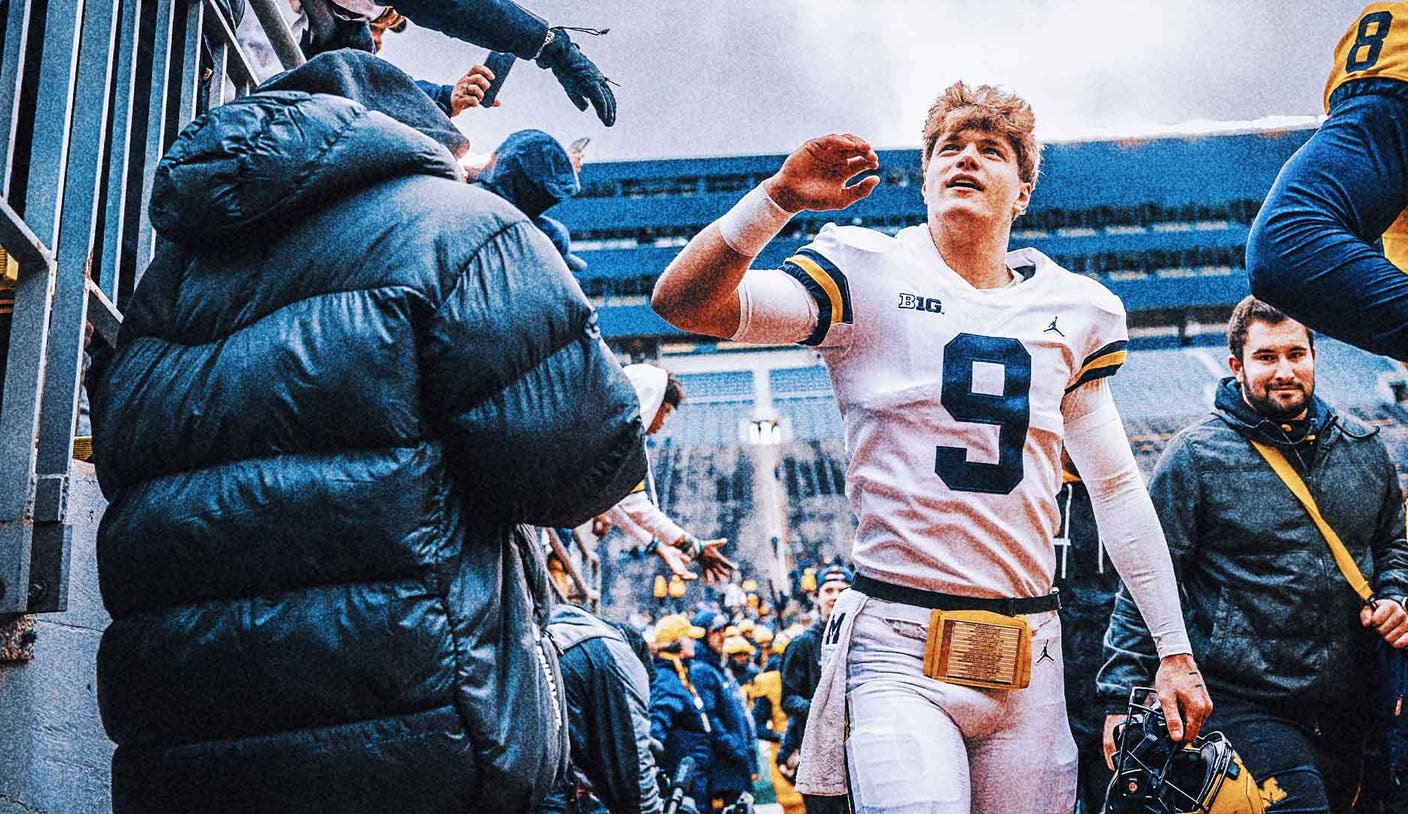
Mary Fowler didn’t quite know what to do with herself when she scored for Australia in the co-host’s do-or-die victory over Canada on Monday. Having already celebrated once on a goal that was ultimately disallowed, she didn’t want to look silly.
“The second one, the one that was actually in, that was so awkward,” Fowler told reporters. “I didn’t know whether to celebrate or not, because I was like, what if it gets denied again, then I just look double cringe.”
Double cringe? If that sounds like the lingo of a carefree youngster, that’s because it is. The part of the story where Fowler is also shouldering part of the hopes of an expectant nation — well, yeah, that’s pretty cool too.
But the 20-year-old Matildas forward is part of a youth movement at this Women’s World Cup, and it is perhaps one of the most important narratives running through the tournament.
Women’s soccer, at its highest level, is an unforgiving place. For years, those in the best position to prevail have been those who had been there and done it before. Take a look at the mighty USA squad from 2019 for example, and veteran leadership was a huge part of it.
However, as the game becomes more technical, more skillful, and just plain better, a lane has opened up for fresh talent of tender years to arrive, and categorically thrive.
Fowler is one, stepping up masterfully in the absence of superstar Sam Kerr to help power the Aussies into the last 16, becoming an unwitting cult figure at the same time, thanks to her distinctive black gloves and her fearless game.
Across women’s soccer, especially in Europe, big-spending elite clubs are taking notice, and the desire to sign not just the very best of today but also the strongest prospects for the future, has become a genuine thing as the competition for talent heats up. Fowler is at Manchester City in England, and now has her compatriots excited about an attacking tandem when Kerr returns from injury.
No talk about young stars at this event is complete without heavy mention of Linda Caicedo, the Colombia starlet who has a beautiful game and an inspiring backstory to go with it.
Caicedo was electrifying as Colombia took down Germany to set itself on a path toward the knockout round, even better than her dazzling display against South Korea days earlier. Simply, she’s worth the price of admission all by herself, a skipping, juking, attacking force who stretches defenses to the limit. The kind of player Real Madrid likes to sign, and in her case, they just did.
“She is special,” Colombia head coach Nelson Abadia said. “What is most special is not what she can do with the ball, but that she constantly wants to do even better.”
Caicedo underwent chemotherapy for ovarian cancer as a 15-year-old and sparked concerns over her current health when displaying signs of fatigue during training and the Germany clash.
Perhaps more than any other she is the individual player everyone wants to watch, and looks like the catalyst for Colombia to be a world threat for years to come.
The best part about young brilliance is that it feels like it comes suddenly from nowhere, adding to the sense of surprise and delight. The European Championships last year was a big event for women’s soccer, and England’s triumph captured attention in that nation and beyond.
Yet Lauren James wasn’t part of it, the now-21-year-old unable to force her way into a stacked Lionesses squad. Well, she’s here now, and has been one of the players of the World Cup.
James scored two goals and set up three more as England sunk China 6-1, and has brought energy to a lineup that is missing several key contributors from that Euros campaign. No defense has discovered the antidote. England’s opponents are running out of time to find one.
The emergence of inexperienced exceptionalism isn’t entirely unprecedented. Marta was 21 when she dominated the 2007 World Cup, highlighted by an incredible display against the United States in the semifinals. Alex Morgan was the same age at the start of the 2011 World Cup, back when she was still nicknamed “Baby Horse.”
Fresh blood nourishes the soul of any World Cup, reminding us that we don’t know everything and that change isn’t just good, its darn exciting.
“(Lauren) has an unbelievable technique that she has worked on for many years, but when you see it at the World Cup, it’s amazing,” James’ father, Nigel, told the BBC. “You just think, ‘Wow.'”
So do we, Mr. James.
Martin Rogers is a columnist for FOX Sports and the author of the FOX Sports Insider newsletter. Follow him on Twitter @MRogersFOX and subscribe to the daily newsletter.

Get more from FIFA Women’s World Cup Follow your favorites to get information about games, news and more










